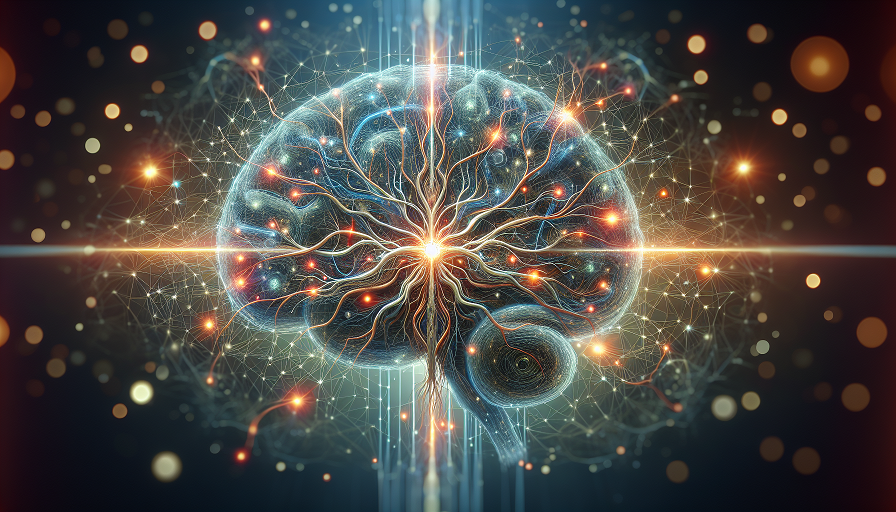
You’re sitting at your desk, determined to tackle a mountain of tasks, but distractions pull you in every direction. You wonder, “Should I focus or concentrate harder?” While the two words are often used interchangeably, they’re not the same. Understanding the difference between focus and concentration can help you unlock new levels of productivity and mental clarity.
Contents
Defining Focus and Concentration
Focus and concentration share similarities but serve distinct purposes in how your brain processes and retains information.
What Is Focus?
Focus is the ability to direct your attention toward a specific task or goal. Think of it as your mental spotlight. It’s about deciding what deserves your energy in the moment, whether that’s completing a report or listening to a podcast. For example, a photographer uses focus to isolate the subject in a frame, blurring out distractions in the background.
What Is Concentration?
Concentration is the sustained mental effort you apply to the task you’re focused on. It’s the endurance required to keep your spotlight fixed on the task without getting sidetracked. For instance, a student studying for hours without checking their phone demonstrates high concentration.
The Key Difference
Focus is about choosing where to direct your attention, while concentration is the ability to maintain that attention over time. Imagine focus as picking a destination on a map and concentration as the journey to get there.
How Focus and Concentration Work in the Brain
Both focus and concentration rely on your brain’s intricate networks, but they involve different processes and regions.
The Role of the Prefrontal Cortex
Your prefrontal cortex, located at the front of your brain, is the command center for focus. It helps you prioritize tasks and filter out distractions. For instance, when you decide to finish reading a book instead of scrolling through social media, your prefrontal cortex is at work.
The Role of Dopamine
Dopamine, a neurotransmitter associated with motivation, plays a crucial role in concentration. It reinforces your ability to stay on task, rewarding you with feelings of accomplishment as you progress. A lack of dopamine can make it difficult to maintain concentration, which is often seen in conditions like ADHD.
The Brain’s Energy Demands
Focusing and concentrating require significant energy. Glucose, your brain’s primary fuel, is consumed rapidly during tasks that demand intense mental effort. This is why you might feel mentally exhausted after solving a complex problem or writing a detailed report.
Real-Life Scenarios: Focus vs. Concentration
Everyday examples can highlight the subtle yet important differences between focus and concentration.
The Morning Meeting
During a team meeting, focus helps you tune in to the speaker’s presentation. Concentration, however, is what keeps you actively engaged, processing and analyzing the information for an hour without zoning out.
Studying for Exams
When a student sits down to review a textbook, they use focus to decide which subject to study. Concentration keeps them reading, taking notes, and resisting the temptation to check their phone or wander to the fridge.
Creative Projects
An artist uses focus to visualize a concept for their painting. Concentration is what allows them to sit for hours perfecting every brushstroke, even when distractions arise.
Enhancing Focus and Concentration
Improving focus and concentration takes practice and the right tools. Here’s how you can sharpen both skills.
Set Clear Goals
Focus thrives on clarity. Break your tasks into smaller, actionable goals. For example, instead of saying, “I’ll work on my project,” specify, “I’ll write the introduction and outline by 11 AM.”
Eliminate Distractions
Both focus and concentration suffer in environments full of distractions. Turn off notifications, use noise-canceling headphones, and keep your workspace clutter-free. Apps like Freedom can help by temporarily blocking access to distracting websites.
Support Brain Health with Nutrition
Your brain needs proper fuel to focus and concentrate. Include foods rich in omega-3s (like salmon and walnuts), antioxidants (like blueberries), and complex carbohydrates (like oats) in your diet. Brain supplements, such as nootropics, can also support cognitive function by enhancing memory, focus, and alertness.
Practice Mindfulness
Mindfulness meditation trains your brain to focus on the present moment. Even a 10-minute session can improve your ability to concentrate. For example, focusing on your breath during meditation helps you practice redirecting your attention whenever your mind wanders.
Common Challenges and How to Overcome Them
Maintaining focus and concentration isn’t always easy. Here’s how to tackle common obstacles.
Overwhelm and Multitasking
Trying to do everything at once scatters your focus. Combat this by prioritizing tasks and tackling them one at a time. Use the Eisenhower Matrix to sort tasks by urgency and importance, ensuring you focus on what truly matters.
Mental Fatigue
Long periods of concentration can drain your mental energy. The Pomodoro Technique, which involves 25-minute work intervals followed by 5-minute breaks, helps prevent burnout while maintaining productivity.
Stress and Anxiety
Stress can hijack your focus and concentration. Practices like deep breathing, yoga, or listening to calming music can help lower stress levels. Pair these practices with nootropics designed to support mental clarity during high-stress periods.
The Role of Technology in Focus and Concentration
Technology is a double-edged sword—it can either enhance or hinder your ability to focus and concentrate.
Focus-Enhancing Tools
Apps like Forest and Focus@Will use gamification and tailored music to boost productivity. For instance, Forest rewards you with virtual trees as you stay focused, turning concentration into a fun challenge.
Combatting Digital Distractions
Constant notifications and alerts are the enemies of focus. Set your devices to “Do Not Disturb” mode during work hours and schedule specific times to check email or messages.
Blue Light and Sleep
Excessive screen time before bed can disrupt your circadian rhythm, affecting your ability to focus the next day. Use blue light-blocking glasses or enable night mode on your devices to reduce strain on your brain.
Understanding the distinction between focus and concentration allows you to harness both more effectively. By using practical strategies, nourishing your brain, and incorporating tools like nootropics and mindfulness practices, you can achieve greater mental clarity and productivity.

